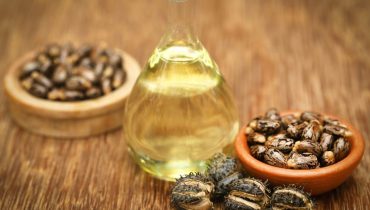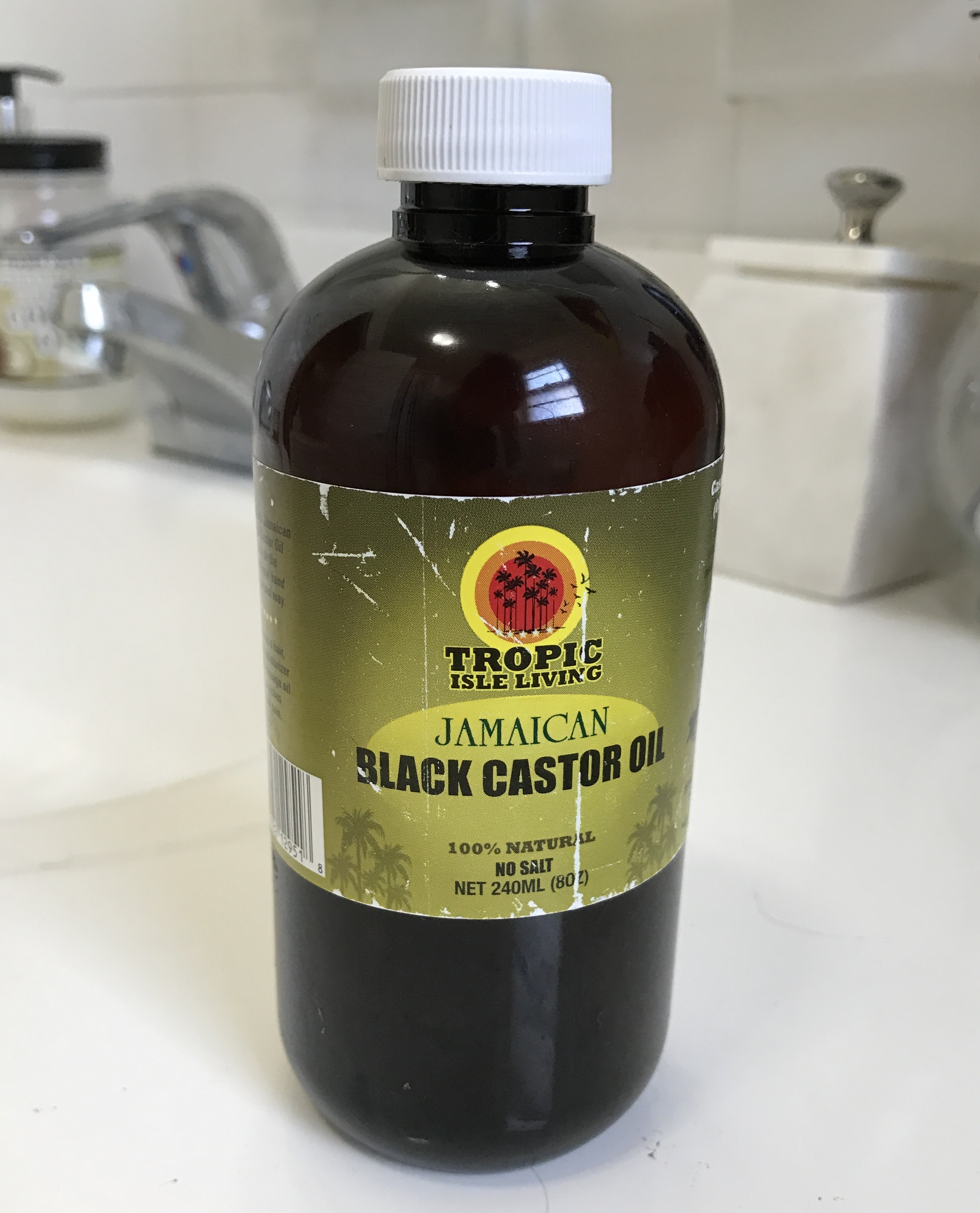Jamaican Black Castor Oil Vs Clear Castor Oil

Whenever I visit the family in Jamaica, before I leave my mom knows she has to take me to get two things; a bottle of honey* and a rum flask of castor oil*.
You know you got the good stuff when the only thing they can find to put it in is an old white rum bottle. I never distinguished between Jamaican black castor oil* and the clear kind until I started my hair journey; I have always just known the ever potent dark colored version.
If you talk to an older Jamaican person they would probably be quick to tell you too that you can use it for a variety of things including, rubbing your joints if you suffer from arthritis, to induce labor (which I personally would not recommend), and it is believed that it can prevent cysts and lumps if you massage your breasts with it.
My Grandmother will also tell you that if you use castor oil on your skin you can prevent eczema, psoriasis, pimples and other skin ailments. They would hardly ever mention hair which I thought was quite interesting, but none the less we now know it’s great for our tresses too.
To determine the difference between Jamaican Black Castor Oil* (JBCO*) and the clear version, it will be necessary to give you a short history lesson.
Castor oil is originally from Africa. As it is with many other things, the slaves brought the seeds over to Jamaica where the oil was extracted and used for all the things I just described.
Raw unadulterated castor oil* is very rare but is still being made in some areas of the island today, and is not black in color, it is actually yellowish. Squeezing the seed at high pressure to extract the oil is called cold pressing, and when it is done in that manner it allows the properties of the oil to remain intact versus using heat which degrades the oil.
Earlier I mentioned the castor oil in the rum flask, and one of the reasons I mention it is because the Tropical Isle brand that we are used to purchasing is the closest to that version that you can find anywhere.
According to their website, the reason the oil is dark is because the seeds are roasted, and the ash from the process is added into the oil taking it from that yellow color to in some cases extremely dark.
 Not only is the color distinct but the smell is very distinct too. It literally smells like burnt seeds which isn’t the best smell in the world if we were to be completely honest.
Not only is the color distinct but the smell is very distinct too. It literally smells like burnt seeds which isn’t the best smell in the world if we were to be completely honest.
Very clear castor oil* has a lower iodine content than the yellow version because it is filtered making it the purest version of itself you can find. The clearer the oil the more pure it is considered but it is not necessarily better.
There are other completely clear versions of castor oil that are found in high quantities at the beauty supply stores. These are typically more processed than the Tropical Isle Brand, and tend to have other additives.
You will find added ingredients like some sort of fragrance, mineral oil*, and just in case you are into parabens, there may be some of those in them as well. Another good reason to always check the ingredients before you purchase a product!
So which is better JBCO or clear castor oil*?
Honestly, determining if the Jamaican black castor oil* with the ash is better than regular castor oil, can boil down to a matter of preference. One could argue that the oil with ash is not the purest because the ash is added to the oil from the roasting process and not extracted from the seed itself.
On the other hand the ash is a bi-product of the seed so having it in the oil is not such a bad thing, and actually makes the product seem more “whole”.
Regular castor oil might be easier on the nose especially if you use it daily for simple things like sealing your ends or in your creams and butters, it is less heavy and can be found in your local Walmart.
However Jamaican black castor oil* is also great because it is the closest to the seed you are going to get. In terms of hair growth benefit anecdotally speaking both oils are as good as each other although in recent years JBCO has had the larger backing.
While JBCO might not be as practical for everyday use, it makes a great pre-poo treatment, hot oil treatment and can also be used in concoctions such as the Kimmaytube leave in.
When you purchase castor oil* make sure that it is from a reputable brand and always check the ingredient list. Some manufacturers have resorted to playing little tricks on us by adding dark dye to give the castor oil a dark color so they can market it as black castor oil or just adding a few drops of castor oil to a base of mineral oil* and calling it castor oil*.
So, what’s your preference, JBCO or regular castor oil?




